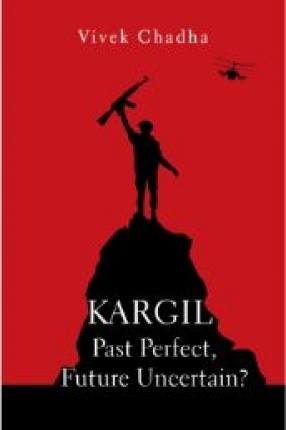Kargil: Past Perfect, Future Uncertain?
The Kargil conflict was fought 20 years ago. However, it continues to remain relevant for strategic analysts, military historians, academics, armed forces personnel and diplomats. This book, delves into the structures, planning processes and procedures adopted while pursuing diplomacy, higher direction of war and strategic communications, on both sides of the Line of Control during the Kargil conflict. In doing so, existing arguments are challenged and alternative conclusions drawn. This includes the debate around the decision not to cross the LoC during operations, the decision making process involved with the employment of air power and limitations of existing strategic communication structures of the armed forces, as observed during the conflict. The second part of the book employs Kargil and the succeeding 20 years, as the basis for analysing the changing character of war. This includes a study of its implications on the notion of victory and shifts needed while pursuing diplomacy, higher direction of war and strategic communications. It also introduces the concept of finite and infinite game theory to conflicts in the sub-continental context, in an attempt to contextualise it through a fresh perspective.
Contents: Introduction. 1. Turning the Tables: Kargil a Diplomatic Coup. 2. The Higher Direction of War. 3. Strategic Communications during the Kargil Conflict. 4. The Challenge of Future Conflicts: Kargil and Beyond. 5. Competing Notions of Victory: Case of Pakistan. 6. The Case of China. 7. The Future of Conflict. Conclusion. Index.
Get it now and save 10%
BECOME A MEMBER







Bibliographic information